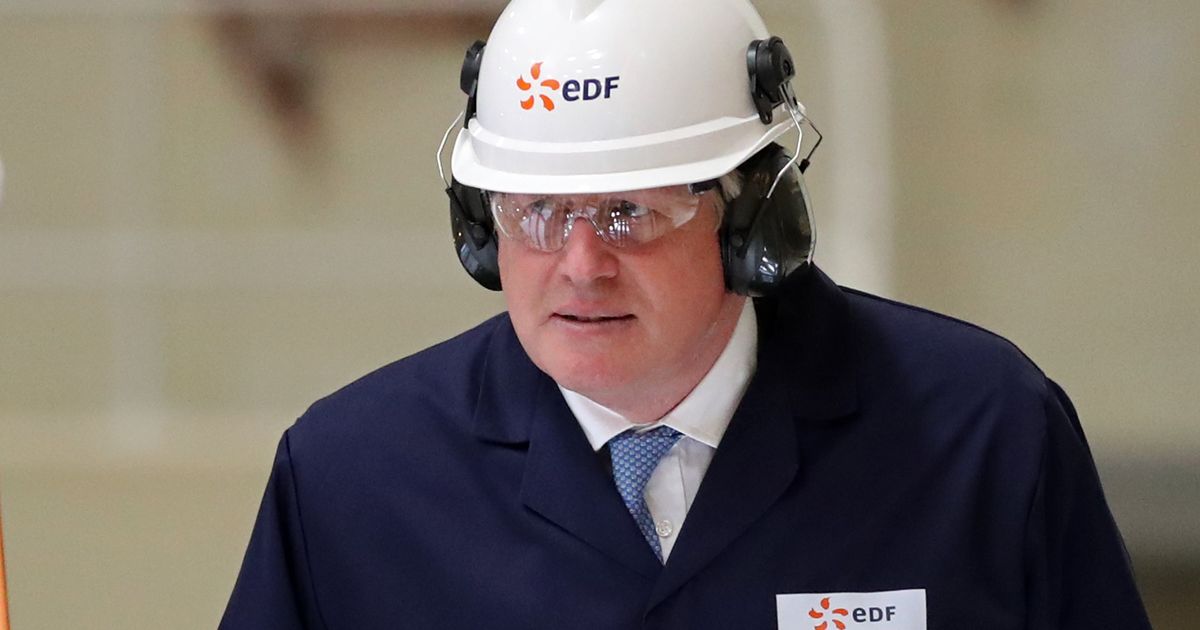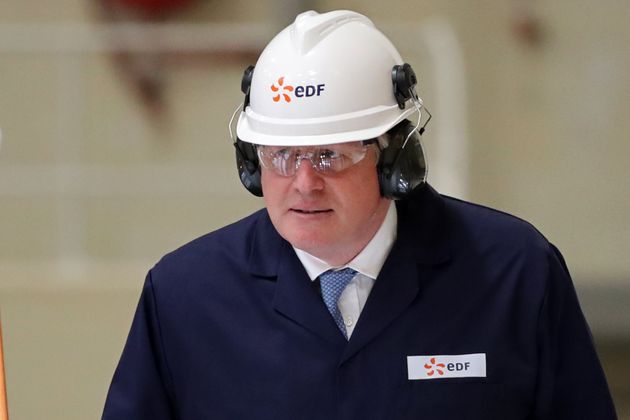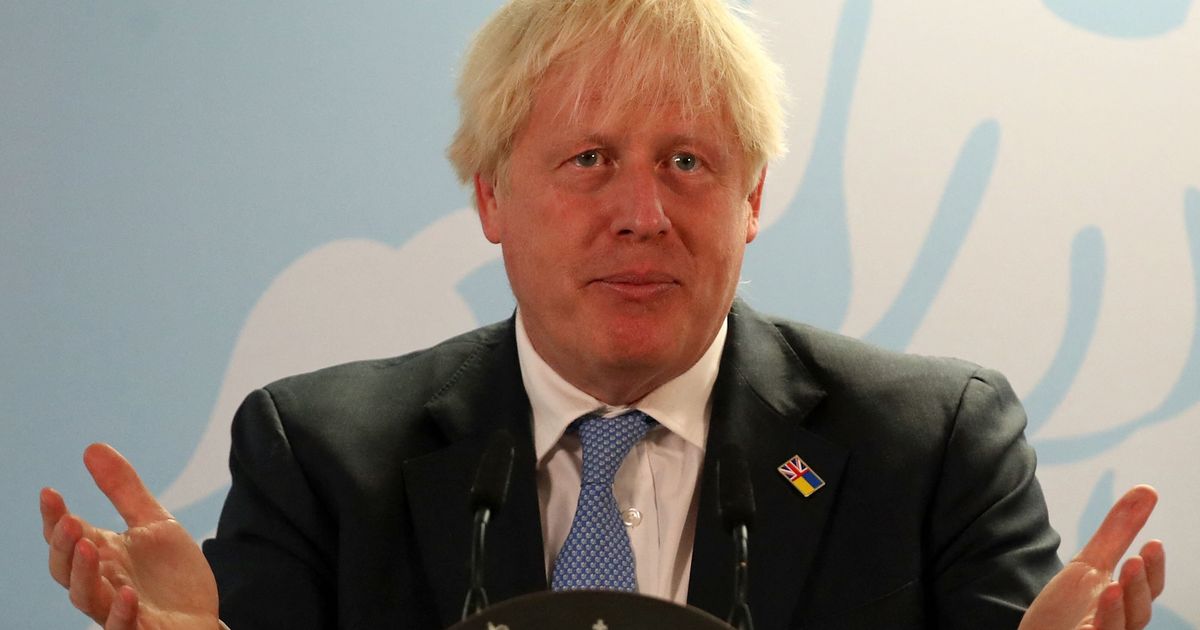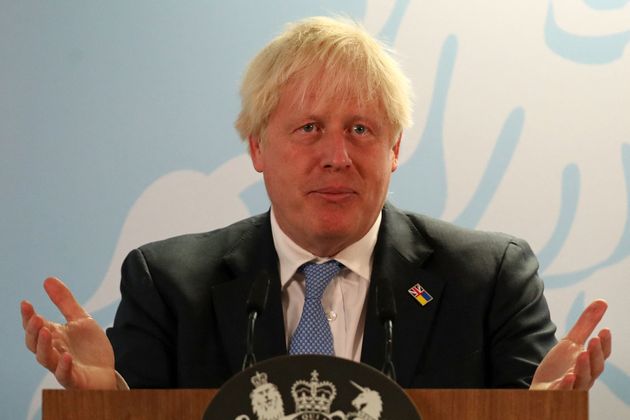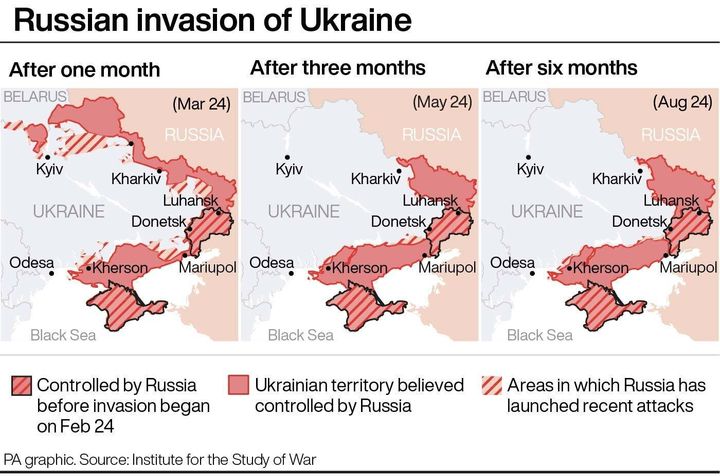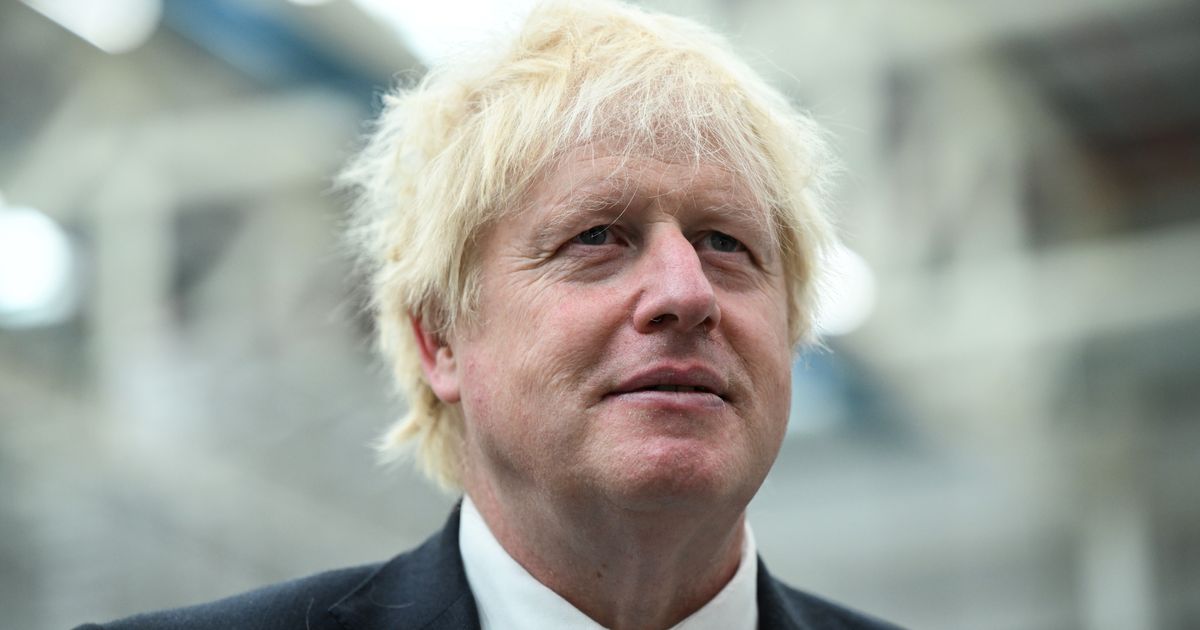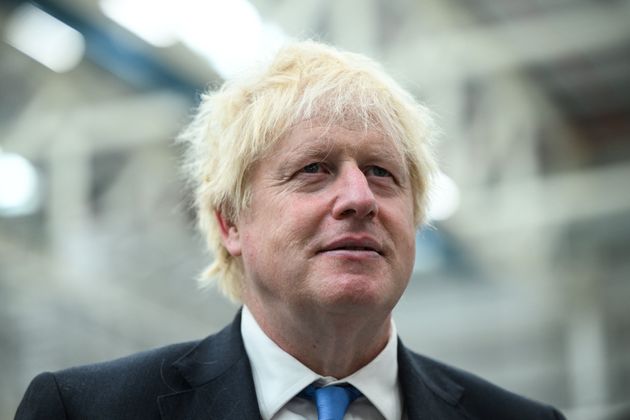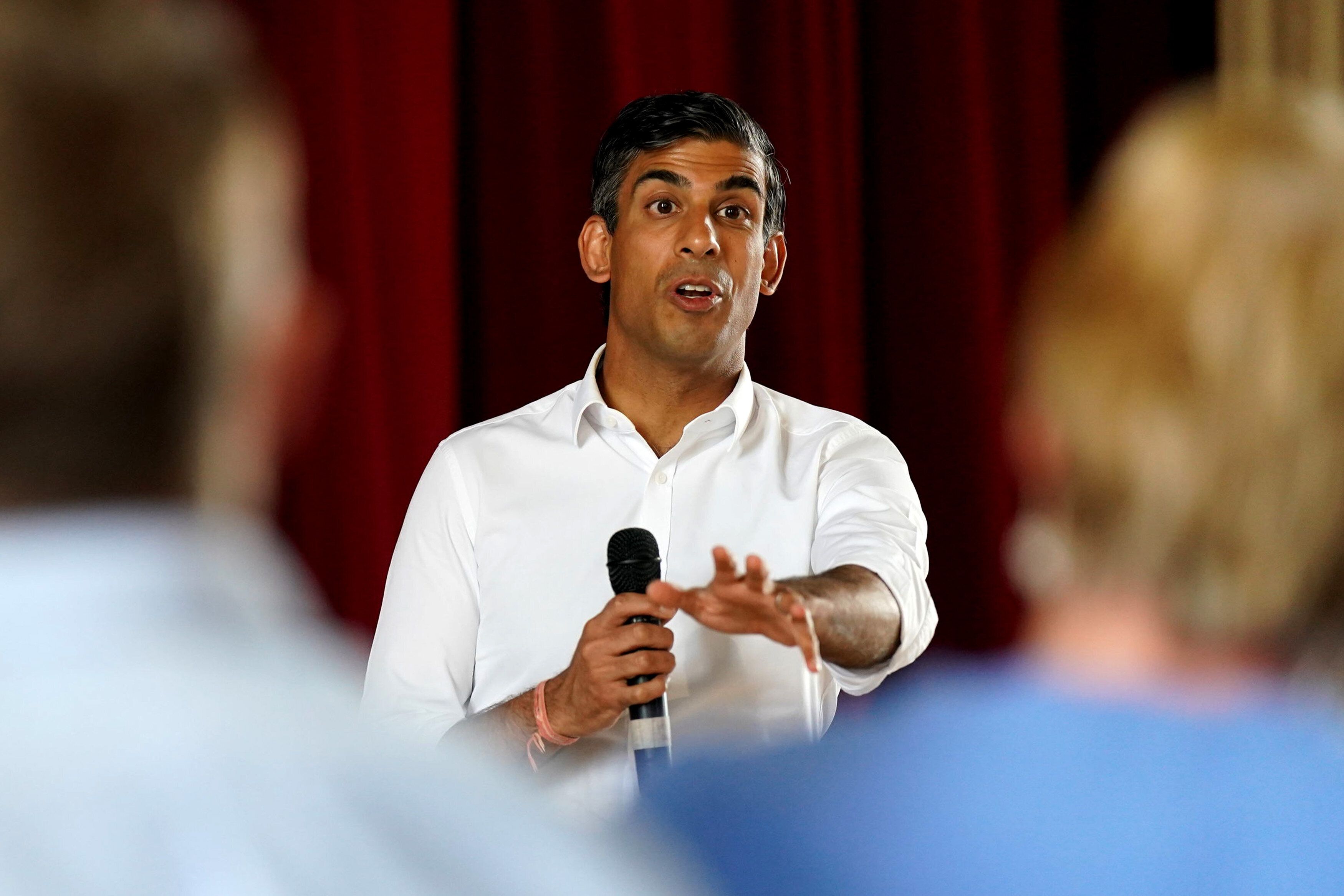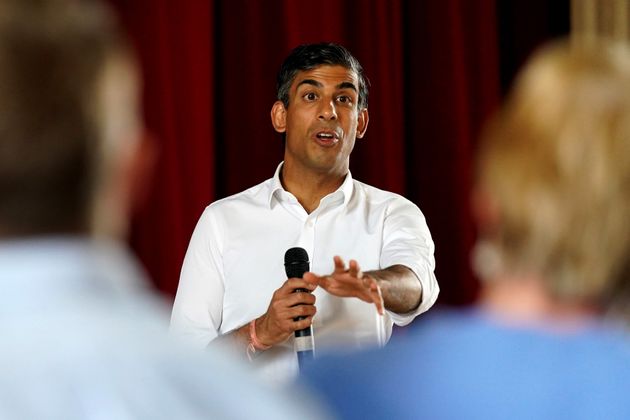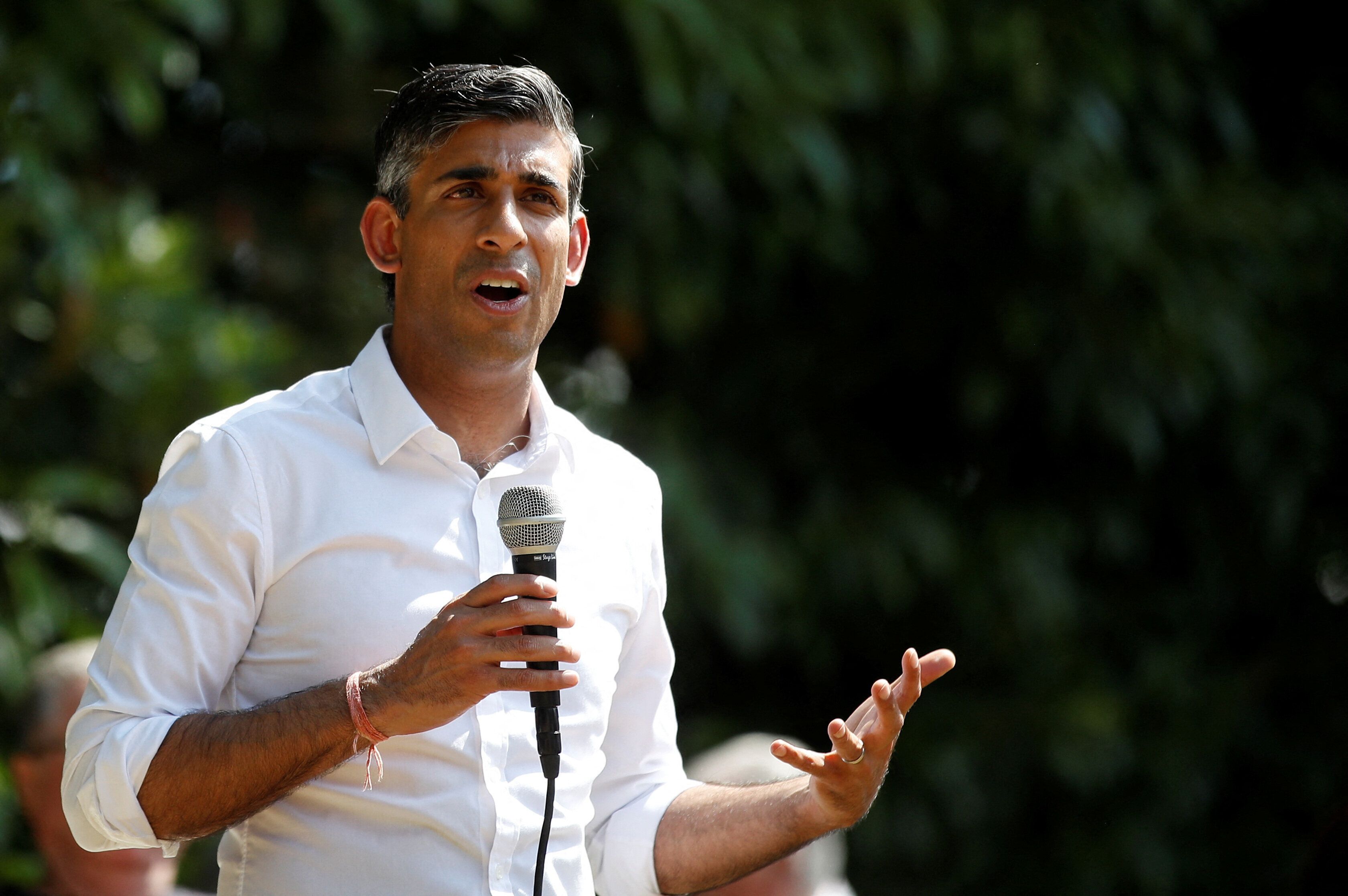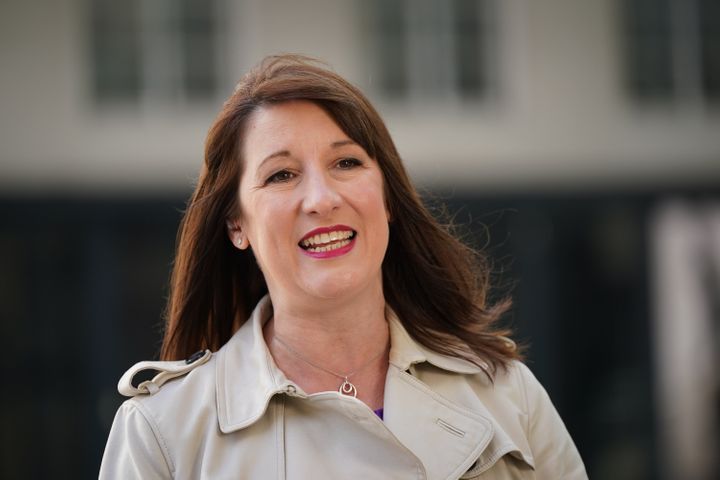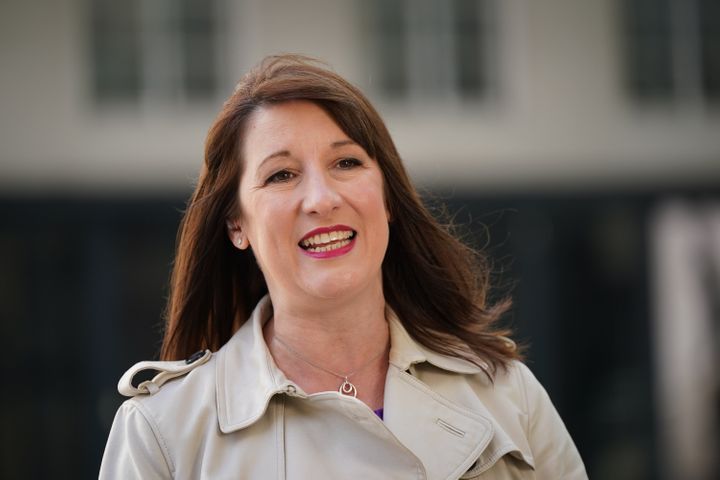Boris Johnson has finally spoken up about the cost of living crisis, although even his well-intentioned speech has not landed among his online critics.
But, the clip going viral on Twitter has been taken out of context.
Here’s what you need to know.
What happened?
On Thursday, during his final public speech as the prime minister, Johnson was praising the virtues of nuclear power.
He said he would be assigning £700 million funding for a new nuclear plant to improve the UK’s energy security, and tried to explain how it might seem more expensive now to install but it would pay off in the long-run.
He claimed that if Hinkley Point C nuclear power station (in Somerset) were running now, it would be cutting “our national fuel bills by £3 billion”.
He explained: “Nuclear always looks – when you begin – relatively expensive to build and to run, But look at what’s happening today, look at the results of Putin’s war. It is certainly cheap by comparison with hydrocarbons.”
He then made this analogy: “If you have an old kettle that takes ages to boil, it may cost you £20 to replace it, but it will save you £10 a year every year, on your electricity bill.”
However, this last sentence was taken out of context on social media, and was widely mocked for appearing like real, cost of living advice.
Why did people react so strongly to the clip?
Had this been real advice, it would have meant saving £10 a year – this is just 0.28% of the £3,549 energy price cap set to kick in for the average household from October 1.
This increase is set to exacerbate a crisis already gripping the UK, as it is an 80% leap compared to the already high current energy price cap of £1,971.
An extra three million people into poverty this winter as a result, according to the Resolution Foundation.
So, understandably, people weren’t keen on letting the prime minister – who has been accused of being missing in action since he resigned at the start of July – off the hook when they believed it was genuine advice.
Has Johnson been forthcoming throughout the cost of living crisis?
Johnson has faced repeated scrutiny for not engaging with the cost of living crisis ever since he resigned back at the start of July.
The government also decided it would not be making any financial decisions for the rest of Johnson’s time in office, despite the speed at which the cost of living crisis is worsening.
Since he quit, the prime minister has gone on holiday twice, avoided essential Cobra meetings and moved to the grace-and-favour country home in Chequers.
In the meantime, iInflation has soared to 10.1%, the fastest rate of increase for 40 years, and could even jump beyond 18% according to forecasts from Citi investment bank.
Only last October, the prime minister had tried to quell any worries about inflation by claiming such fears were “unfounded”.
Neither of his potential successors, Rishi Sunak or Liz Truss, have outlined coherent plans to tackle the crisis.
But Johnson claimed on Thursday that further government help was on the way.
Speaking in Suffolk, the prime minister said: “We’re helping people now with the cost of living and of course there will be more cash to come, whoever takes over from me, in the months ahead – substantial sums, that’s absolutely clear.”
He claimed that it was “clear that come the new administration, there is going to be a further package”, because “we have the fiscal firepower to sort it out.”
So, what was he actually saying about nuclear power?
The energy crisis stems from Europe’s reliance on Russia’s supplies. Since Moscow launched its invasion into Ukraine, the west has been adding a growing list of sanctions against Russia and has been trying to wean itself off its oil and gas exports.
Russia has also been squeezing the amount of energy it sends to Europe to leverage the west over its continual support for Ukraine.
So, Johnson’s decision to back nuclear energy comes at a time when the UK desperately needs new energy sources.
His speech at the new reactor at the Sizewell site in Suffolk could power the equivalent of around six million homes once built.
However, as Johnson leaves office on Tuesday, it’s not clear if the building will go ahead. Downing Street has not provided any more details about the funding according to PA news agency and EDF energy company (meant to be in partnership with the plant) did not respond.
The total cost of the project could be around £20 billion, and would not start generating electricity until around the 2030s.
Still, nuclear is considered a feasible alternative to fossil fuels.
Johnson also took aim at previous governments (led by both Tony Blair and Gordon Brown) for not injecting funding into it sooner – even though the Tories have been in power for 12 years now.
“So no more national myopia,” he concluded. “No more short-termism, let’s think about the future, let’s think about our kids and our grandchildren, about the next generation.”
